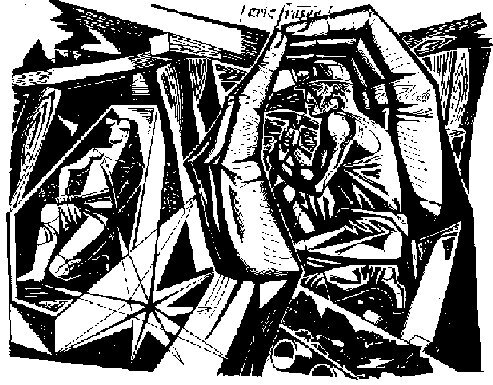
Charles Parker Day 2011
The eighth Charles Parker Day celebrated the 50th anniversary of The Big Hewer, the Radio Ballad about the mining industry, and was held in Newcastle-upon-Tyne – a city partly built on the profits of coal.
Report from Andy Cartwright, organiser of the Charles Parker Day 2011, Senior Lecturer at the University of Sunderland and Executive Producer at Soundscape Productions
The eighth Charles Parker Day took place on 1 April 2011 in the Castle Gate Centre, Newcastle-upon-Tyne. A city partly built on the profits of the mining industry it was a suitable location to celebrate the 50th Anniversary of the fourth Radio Ballad The Big Hewer and the idea of miners and mining became one of the main themes of the Charles Parker Day 2011.
The day was held under the auspices of the University of Sunderland and was introduced by the university’s Head of Media, Professor Guy Starkey. After a short welcome from Tim Blackmore, the Chair of the Trust, and myself, Peter Cox, the author of ‘Set in Song’, put The Big Hewer into context and compared it with last year’s Ballad of the Miner’s Strike produced by Smooth Operations for BBC Radio 2. Peter’s excellently illustrated talk ended with a surprise as he introduced Louise Killen who sang on the Big Hewer as Louis Killen!
Then Karl Dallas and Doc Rowe presented a personal memory of the Ewan MacColl 70th Birthday Concert which took place on the 21st January 1985 in the middle of the year-long 1984-85 Miner’s Strike. Karl was in charge of publicity and Doc took the official photos which provided a backdrop to their presentation. Their talk brought back memories of both the occasion and the folk impresario Bruce Dunnet who took a gamble on booking (and filling) the Queen Elizabeth Hall on London’s South Bank. It was also a chance to hear about Ewan being presented with a Miner’s Lamp (twice!) and listen again to some of his most politically motivated songs taken from the mini radio ballad launched at the concert – Daddy, What did you do in the Strike?
Then Dr Andy Green, who has worked on a number of Birmingham based projects including Connecting Histories and Birmingham Stories, showed, in a fascinating talk, how the Charles Parker Archive in Birmingham was being used in local communities to help both stimulate fresh memories and also what it is like to be challenged by members of the community in Birmingham remember things differently.
After lunch Sara Parker talked about two programmes she made during the past year about pornography – Sex, Porn and Teenagers presented by Miranda Sawyer on BBC Radio 4 and the highly publicised Porn Again, presented by former Home Secretary Jaqui Smith on BBC Radio 5live. These both illustrated the importance of in-depth interviewing techniques perfected by her father and demonstrated the need to not limit storytelling to journalism but making programmes that let the listener draw their own conclusions.
This was followed by an exploration of storytelling through radio drama with Professor Andrew Crisell of the University of Sunderland and the drama producer Mel Harris from Sparklab Productions. The session began with an extract from the first original radio drama written in 1924 by Richard Hughes which, being set in a mine, returned to the theme of this year’s Charles Parker Day. In Danger the couple visiting a mine are suddenly plunged into darkness as the lights fail placing the protagonists into a position where they cannot see – just like the listener.
Andrew Crisell then explored how this ‘blind’ world becomes a wonderful canvas which has the potential to paint complex pictures in the human imagination. Mel Harris then illustrated this by introducing extracts from a variety of her productions, like the creative radio adaptation of the The Red Balloon and Nina Black, a drama which dramatised a real person’s life but also featured an interview with Nina herself, using techniques which echoed some of the ideas Charles used in the Radio Ballads.
Then Paul Allen, the writer and broadcaster, looked back at the life of Dave Sheasby, the Sheffield based, award-winning poet, radio dramatist and producer who died suddenly last year, using Dave’s own creative poetic BBC Radio 3 feature Strata, about the former mining community in Yorkshire’s Dearne valley, a programme which celebrated the rocks and workers under our feet.
Paul illustrated how deeply Dave’s work was affected by the Radio Ballads (which he always insisted new radio producers should hear in order to understand the creativity of the medium) and that Dave’s Sheasby’s own creativity is a huge loss to UK radio.
The final presentation was by Dr Trish Winter, again of the University of Sunderland, who presented her research into how Englishness is articulated through the resurgence of interest in English folk music and dance and controversially touching on the interest in traditional music of far-right groups and folk musician’s response to such an adoption of their music.

